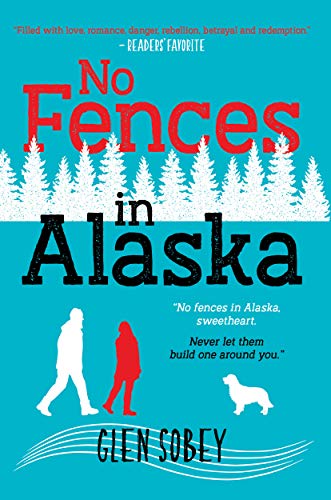Harper’s parents, particularly her father Greg, have always been strict with her, fearing that she will end up like her father’s sister, Heather, who died of a drug overdose. However, her father’s attempts to control her life are driving a wedge between them and pushing her into unhealthy rebellions – particularly heroin and sex. When she finds herself unexpectedly pregnant, she manages to flee to her grandfather Cooper in Alaska, hoping to get an abortion there. But her grandfather offers her a genuine, welcoming, and supportive love that just might help Harper figure out what kind of person she wants to grow to become.
NO FENCES IN ALASKA is a loving and gentle story about what happens when parents and children get too caught up in their miscommunications, assumptions, and expectations to understand each other, and how a loving third party can help untangle the knots that result. The conflicts at the heart of the book are given depth and dimension by letting the reader see both sides of the story- Greg’s fear of his daughter ruining her life before it gets started, and Harper’s deep need to be loved and valued as she is. Cooper, too, is struggling with past mistakes he’s made, but he’s moved through them and learned from them, and we also get to see how his experience has shaped his ability to offer help to both Harper and Greg. The author’s love for the Alaskan wilderness shines through, both its liberating loveliness and its bracing dangers, and it’s delightful to watch Harper respond to that wilderness by developing the strength and independence she needs. There are aspects of the story that are, though, a bit glossed over – some parts of the story that feel too easy and perfect, and other parts that are perhaps not as traumatic as they ought to be.
Readers looking for a comforting, feel-good story about family love and reconciliation will find it in NO FENCES IN ALASKA.
~Catherine Langrehr for IndieReader

